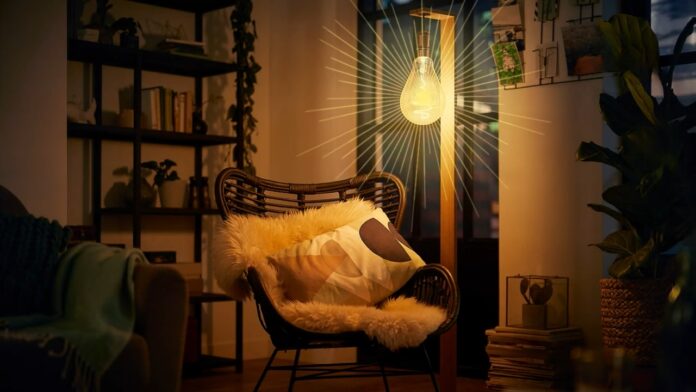Why are my led lights dim? If you’re noticing that your LED lights are appearing dimmer than usual, don’t panic! There are several possible explanations for this, and most can be fixed without too much trouble.
In today’s blog post, we’ll explore some of the reasons why your Light Emitting Diodes might be dim and what you can do to brighten them back up. Stay tuned for more tips on how to get the most out of your lighting!
Why Are My Led Lights Dim:
1. Dirt And Dust:
One of the most common reasons for dim LED lights is dirt and dust build-up on the lightbulbs themselves. Over time, these particles can accumulate and cause the light to appear dimmer.
2. Bulb Type:
Another common cause of dim LED lights is choosing the wrong type of bulb for your fixture. For example, if you have a floodlight that requires a halogen bulb, using an LED bulb may result in a dimmer beam of light output.
3. Angle Of Light Output:
The angle of light output can also affect the brightness of LED lights. If your LED bulbs are designed to emit a narrow beam of light, any objects that are blocking those bulbs may cause them to appear dimmer than they truly are.
4. Excess Heat:
LEDs can overheat and cause performance issues, especially if they are not properly ventilated. If your LED lights are located in a cramped space or if they are not receiving enough airflow, they may appear dimmer than usual.
5. Aging:
Over time, LED bulbs may experience gradual performance issues due to age and general wear and tear. However, replacing your dim LED lights with newer, brighter bulbs is an easy way to restore full brightness.
How To Prevent Led Lights From Getting Dim:
If you’re struggling to keep your LED lights bright, there are a few things that you can do.
1. Use a Higher Quality Power Supply:
One of the best ways to prevent your LED lights from getting dim is to use a higher-quality power supply. A good quality power supply will provide a consistent voltage and current, which will help to keep your LEDs bright.
2. Use the Correct Driver:
Another way to prevent your LED lights from getting dim is to use the correct driver. Many of today’s drivers are made with a dimming circuit built-in, which can help to keep your LEDs bright over time.
3. Use a Voltage Regulator:
If you’re using a power supply that runs at a higher voltage than your LEDs are rated for, you can use a voltage regulator to keep the voltage consistent. This will help to prevent your LEDs from getting dim over time.
4. Use Higher Quality LEDs:
Finally, one of the best ways to prevent your LEDs from getting dim is to use high-quality LEDs. High-quality LEDs are designed to be more durable and will stand up better over time. By using high-quality LEDs, you can keep your LED lights bright for years to come!
5. Clean The Lightbulbs:
One of the easiest ways to keep your LED lights bright is to clean them regularly. Use a soft cloth or sponge and a gentle cleaning solution, like rubbing alcohol, to remove any dirt and dust from the surface of your bulbs.
How To Fix Dimming Issue In Led Lights:
If your LED lights are dim, there are a few things that you can do to fix the issue.
1. Replace The Bulbs:
The first step in fixing dim LED lights is to replace the bulbs themselves. Many of today’s high-quality LEDs will last for years without any issues, so replacing your bulbs may be enough to fix the problem.
2. Check Fuse:
If your LED bulbs are still dim after replacing them, you may want to check the fuse in your fixture or power supply. If the fuse is blown, it will prevent current from flowing through your LEDs, which can cause them to appear dimmer than normal.
3. Adjust Power Supply:
If your fixture or power supply has an adjustable voltage, you may want to try adjusting it. Increasing the voltage can help to increase the brightness of your LEDs. However, be sure not to increase the voltage too much, as this can damage your LEDs.
Conclusion:
Dimmed lights can be frustrating and puzzling. In some cases, it may seem like your light bulbs are working just fine, but they’re not putting out the number of lumens that you expect. In other cases, a bulb or fixture may just be too dim for the intended space.
Before you run out and buy new light bulbs, there are a few simple things you can do to try to fix the problem. We’ve outlined some of these troubleshooting tips for you below.
FAQs:
1. Why are my led lights not bright?
Answer: There could be a few reasons why your LED lights aren’t as bright as you’d like them to be. One possibility is that the LED bulbs you’re using are not of very high quality. In general, LEDs are more expensive than traditional incandescent bulbs.
2. How to make led lights shine more?
Answer: First, as a lamp user, make sure you orient the light source so that it shines directly on the desired surface. Second, as a student, experiment with different lighting setups in your room to find one that best suits your needs.
3. Do led lights to lose brightness when they get old?
Answer: Yes, LED lights do lose brightness as they age. This is because the phosphors inside the LEDio-Ex light-emitting diodes degrade over time when exposed to light and heat. The LEDs themselves also degrade, resulting in a gradual loss of brightness.
4. Why did my led light dim suddenly?
Answer: One possibility is that the bulb might be reaching the end of its lifespan and needs to be replaced. Another possibility is that there is something obstructing the path of light between the bulb and where you are standing, such as a dirty or dusty light fixture.




